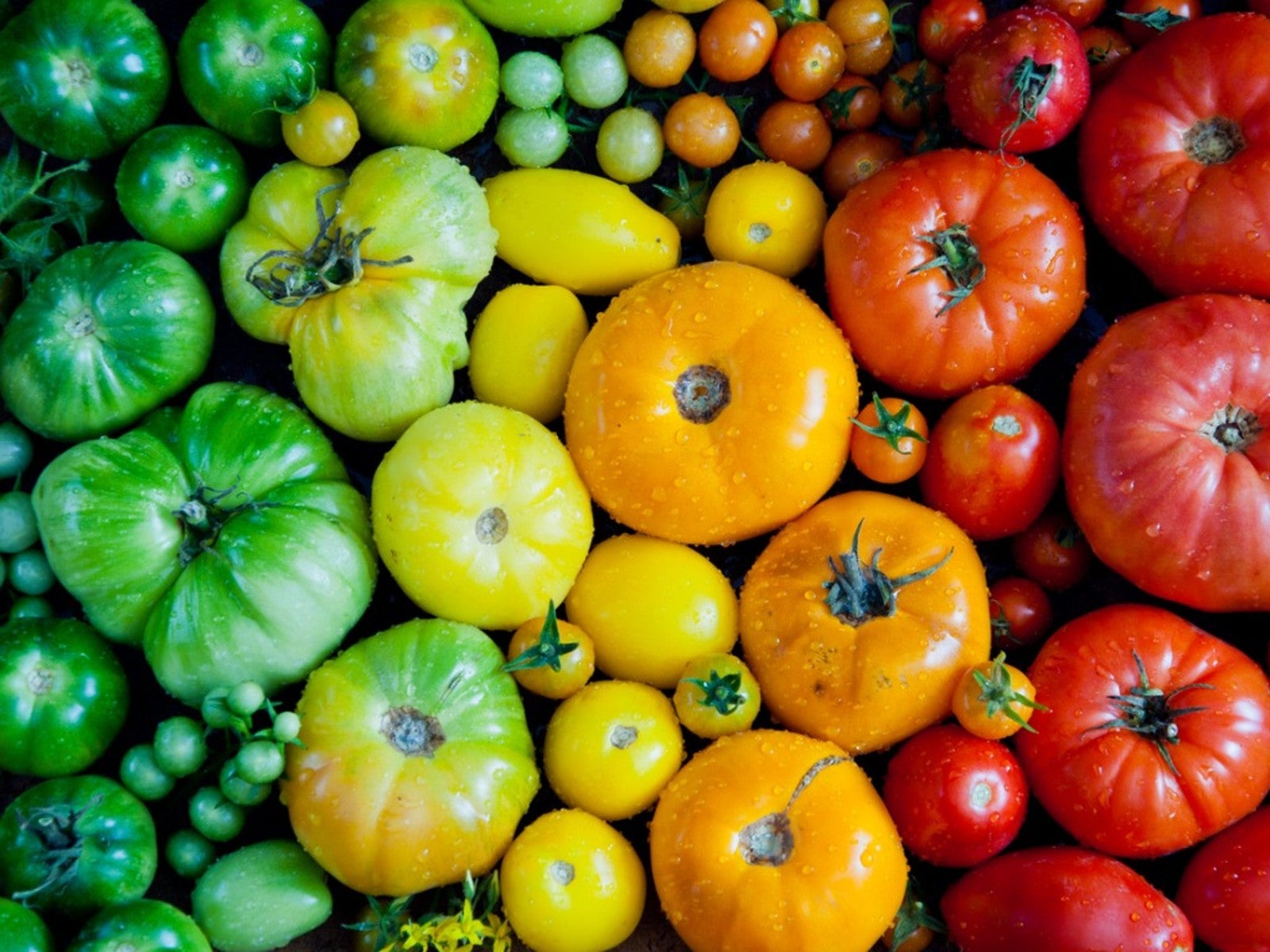
Hybrid fruits and vegetables are the result of crossbreeding between two different cultivars. The goal of hybrid vegetable or fruit hybrids is to create a new cultivar or hybrid with the best traits of the parent plants. This means that hybridized vegetables and plants often have many benefits over open-pollinated crops. The list of hybridized crops is lengthy, so we've compiled our own list of the top six hybrid plants to try in your garden.
What Is A Hybrid Vegetable?
Cross-pollinations occurs in nature, but hybridization is when a grower intentionally cross-breeds two different cultivars of the same species. This intentional breeding has been around since at least the mid-19th century when the Austrian Monk Gregor Mendel demonstrated the procedure.
Often confused, it is worth noting that hybrid plants are not genetically modified plants.
Advantages of Hybrid Crops
Hybrid plants are created because someone noted that a particular variety of cucumber, for instance, has a marked resistance to disease over another type of cuke. The breeder wanted all of her cucumbers to have the advantage of disease, resistance so she crossbred the disease resistant variety to another type of cucumber.
So now the breeder can grow cucumbers that are much less susceptible to diseases than previous cultivars. Not only that, but the new hybrids are likely easier and faster growing, adapt better to stresses, and produce plants with larger fruit and higher yields.
Disadvantages of Hybrids
Because hybrid seeds are made up of DNA from two separate cultivars, they can not be saved and used the successive year. If you do save the seed and plant it, there is no guarantee what plant you'll get. It may have the qualities of the first or second parent plant, or be an amalgamation of both, but it will not be true to the previous season's hybrid. However, eventually, after about 7 generations, the hybridized seeds will become stable genetically and plants grown from the seed will be true to the hybrid.
Hybrid seeds also cost more, simply because they take longer and are more difficult to develop. Hybrids also require perfect growing conditions to thrive. If these conditions are not met, the new hybrid may have a rough go of it.
Sign up for the Gardening Know How newsletter today and receive a free copy of our e-book "How to Grow Delicious Tomatoes".
Gardening Know How’s Top Five Hybrid Fruits and Vegetables
1. Peppers
A deer resistant sweet pepper, "Gypsy," has been created. Under the hot pepper category, "Ascent" is a hybrid Thai style pepper that packs a punch.
2. Broccoli
The hybrid broccoli "Imperial" has the benefit of better heat tolerance, making it an excellent variety for late summer planting and a winter harvest.
3. Corn
There are lots of corn varieties, but two hybrids to try are "Golden Jubilee," a yellow kerneled variety that produces 9 inch (23 cm) long ears, and "Silver Queen," a 7 inch (18 cm) long sweet, white kerneled corn.
4. Cucumbers
Of the hybrid cucumbers, "Summer Dance" is a Japanese type with excellent disease resistance. "Adams Gherkin" is a pickling cucumber that perfectly fills a pint jar.
5. Zucchini
There are a couple of recommended hybrid zucchini. "Astia" is a compact plant that produces prolifically and early, and "Summer Dance" is a Japanese type of zucchini that is disease resistant.
6. Tomatoes
Tomatoes, likely one of the most popular home grown crops, come in several hybrid varieties. "Early Girl" is a medium sized plant that produces reliable good sized fruit with good disease resistance. "Sungold" is a sweet yellow cherry tomato variety borne off indeterminate vines.
"Lemon Boy" is highly resistant to disease, while "Celebrity" is a medium sized red tomato with excellent disease resistance and lengthy production. "Incas Hybrid" is an early pear tomato with thick, meaty flesh and "Cherokee Carbon" is a beefsteak with purple-hued skin borne off of plants that can grow up to 7 feet (2 m) tall.

Amy Grant has been gardening for 30 years and writing for 15. A professional chef and caterer, Amy's area of expertise is culinary gardening.
